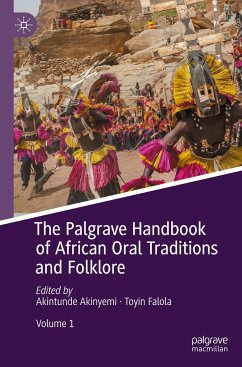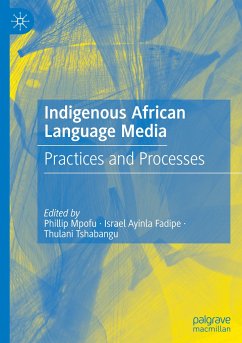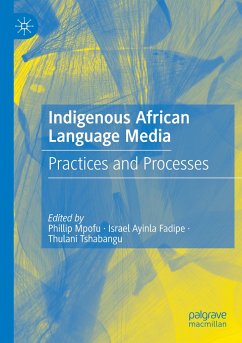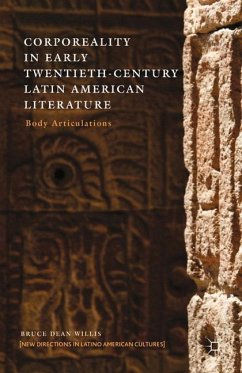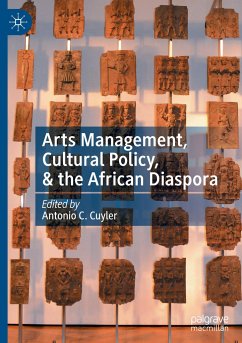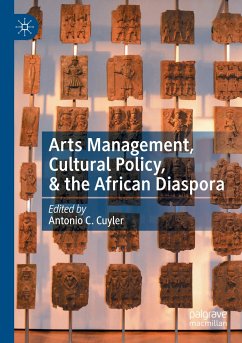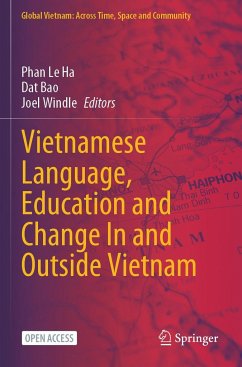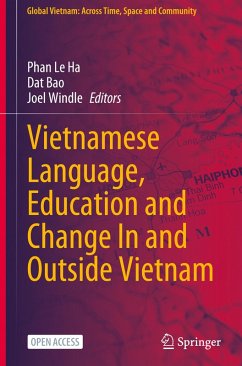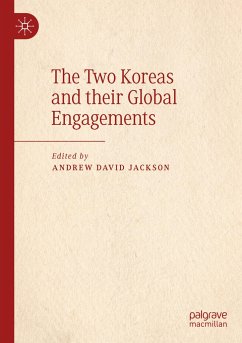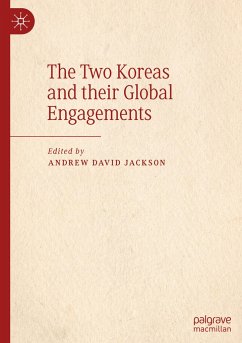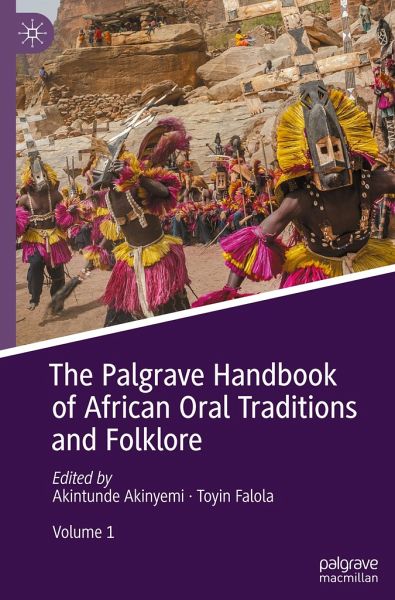
The Palgrave Handbook of African Oral Traditions and Folklore

PAYBACK Punkte
80 °P sammeln!
This handbook offers the most comprehensive, analytic, and multidisciplinary study of oral traditions and folklore in Africa and the African Diaspora to date. Preeminent scholars Akintunde Akinyemi and Toyin Falola assemble a team of leading and rising stars across African Studies research to retrieve and renew the scholarship of oral traditions and folklore in Africa and the Diaspora just as critical concerns about their survival are pushed to the forefront of the field. With five sections on the central themes within orality and folklore - including engagement ranging from popular culture to...
This handbook offers the most comprehensive, analytic, and multidisciplinary study of oral traditions and folklore in Africa and the African Diaspora to date. Preeminent scholars Akintunde Akinyemi and Toyin Falola assemble a team of leading and rising stars across African Studies research to retrieve and renew the scholarship of oral traditions and folklore in Africa and the Diaspora just as critical concerns about their survival are pushed to the forefront of the field. With five sections on the central themes within orality and folklore - including engagement ranging from popular culture to technology, methods to pedagogy - this handbook is an indispensable resource to scholars, students, and practitioners of oral traditions and folklore preservation alike. This definitive reference is the first to provide detailed, systematic discussion, and up-to-date analysis of African oral traditions and folklore.



